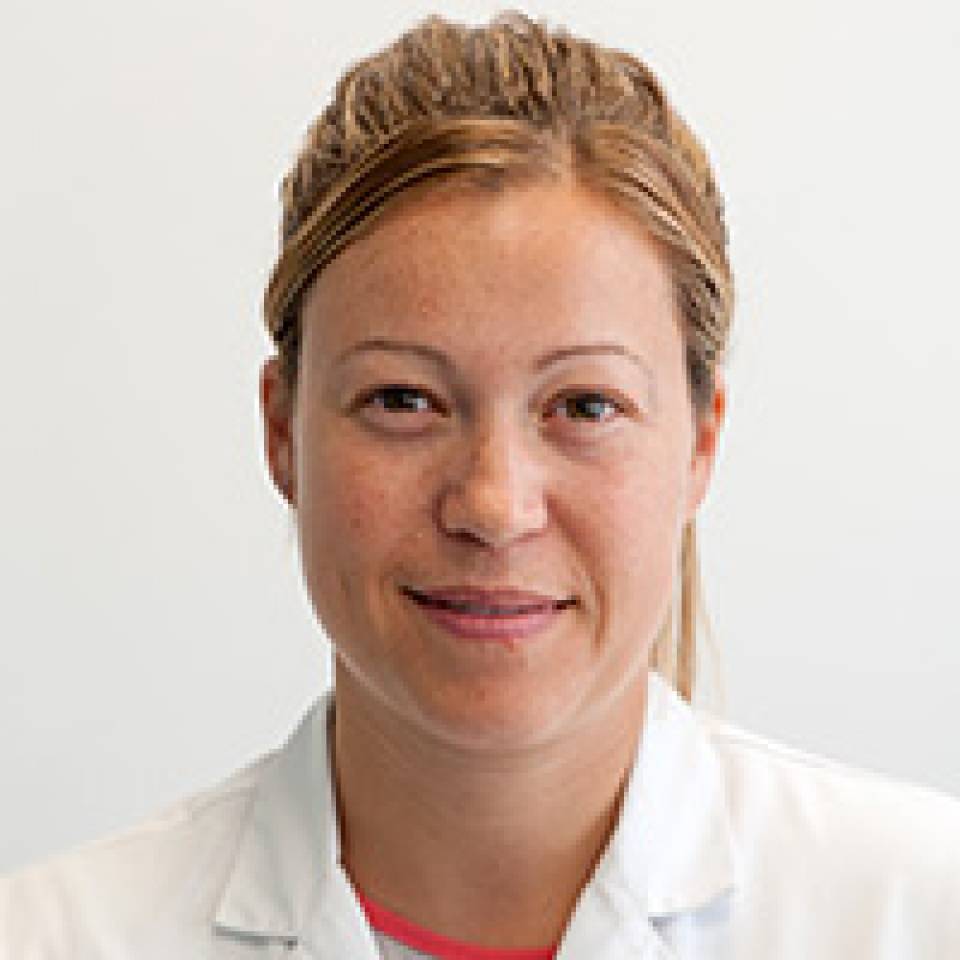Frequently Asked Questions about Cardiac Insufficiency
What’s wrong with me?
It affects 10–20% of the population aged between 70 and 80 years old. In Spain, it is the third cause of death and the primary cause of hospitalisation in people aged over 65.
It is either due to conditions that damage and weaken the heart (this increases the size of its cavities and means it cannot pump enough blood to the rest of the body) or because it loses elasticity and its cavities are unable to fill correctly. The main factors that damage the heart are:
- ischaemic cardiomyopathy (myocardial infarction);
- high blood pressure;
- valvular heart disease;
- direct damage to the heart muscle (cardiomyopathy);
- inflammation of the heart muscle (myocarditis);
- congenital disorders;
- heart rhythm disorders (arrhythmias); and
- certain chronic diseases: diabetes, hypothyroidism, haemochromatosis, amyloidosis or HIV.
Even though the majority of people with cardiac insufficiency are elderly, the disease does not necessarily form part of the ageing process. Heart failure is a very serious cardiovascular disease that can be prevented and considerably alleviated with current treatments.
What tests will I undergo?
A cardiologist will interview you to learn about your symptoms and record them in your medical history. Having analysed this information, the cardiologist may request tests to identify what is causing the insufficiency: an electrocardiogram, blood analysis, chest X-ray and an echocardiogram.
What treatments are available?
There is no treatment available to cure heart failure. The condition is managed through medical treatment to reduce the symptoms and supported by lifestyle changes, such as reducing salt and fat intake.
Cardiac insufficiency is a chronic disease that must be managed for the rest of your life. You are strongly advised, therefore, to follow your medical prescription so the treatment is effective and to prevent your condition from worsening.
Living with heart failure
Cardiac insufficiency courses differently and unpredictably in each patient. You must be aware that heart failure is a serious chronic disease that tends to worsen with time. In some cases, the symptoms remain stable for quite some time (months or years) before they start to decline. In other cases, the intensity and the symptoms gradually worsen with time, or maybe they progress rapidly following, for example, the appearance of a myocardial infarction (heart attack), heart rhythm disorder or lung infection.
It is important to understand that careful treatment of the disease alleviates the symptoms, improves the prognosis and extends life expectancy.
Many people with heart failure notice an improvement in their symptoms when they realise regular physical activity since moderate exercise helps improve heart function.
But it is important to realise what you are capable of. The most commonly recommended activities are walking, swimming or cycling. You must avoid any activities requiring a large strain and try not to exercise during the hottest, dampest or coldest parts of the day.
If you notice difficulty breathing, dizziness, chest pain, nausea or cold sweats you must stop immediately and if the symptoms persist you should visit your doctor or nurse.
Recommendations are to exercise one or two hours after a light meal; similarly, you should avoid exercising after a large meal or if you have not eaten anything in several hours.
Pay attention to the signals your body sends you. In general, you should avoid activities that mean you need to hold your breath, strain or perform sudden bursts of energy. If your grandchildren now weigh more than a newly born, then ideally you should only sit them on your lap.
Maybe you have read promising claims about herbal/natural or alternative treatments. However, there is no clinical scientific evidence that these products improve heart failure. On the contrary, some of the components in these alternative treatments have detrimental effects and interfere with the therapeutic action of some of the prescription medicines used to treat heart failure.
You are strongly recommended to talk with your doctor, nurse or pharmacist before taking any alternative/natural/herbal remedies.
In fact it is a good idea to be aware of the alternative or natural remedies that can affect certain medicines prescribed for heart failure:
• Ephedra (ma huang)
• Ephedrine metabolites
• Chinese herbal preparations
• Hawthorn (Crataegus species) products
• Garlic
• Ginseng
• Gingko
• Coenzyme Q-10
The majority of people with heart failure can drive without any problems. However, individuals with a history of losing consciousness or fainting associated with an abnormal heart rhythm (arrhythmia) should generally discuss their ability to drive with the doctor.
People who need to drive as part of their occupation will probably need to undergo a regular review of their illness and in some countries they may be prohibited from driving. If you drive a heavy or public vehicle you should ask your doctor about the most up-to-date information from the Ministry of Traffic regarding current legislation on chronic cardiac insufficiency.
You can still hold a driving licence if you wear a pacemaker.
In most cases heart failure can be adequately treated and well managed. This means you can work full-time for many years to come. Nevertheless, the type of work you perform, and the cause and severity of the heart failure are factors your doctor will take into account when determining whether you can continue your occupational activity.
Flying does not tend to pose a problem for people with heart failure even though oxygen concentrations are slightly lower, including in the pressurised cabins of commercial airplanes. However, on rare occasions some people require additional oxygen during the flight.
By and large, if your cardiac insufficiency is well managed and stable, then the small reduction in oxygen concentration inside an airplane should not cause you any difficulties so long as your symptoms are under control before the flight. If new symptoms arise or your existing symptoms worsen, such as increased difficulty breathing or recent weight gain, then you should discuss your travel plans with your doctor.
If you have an implanted device (pacemaker, CRT device, ICD) they will probably be detected by the security scanners. Inform the security personnel beforehand. The security control and flight will not interfere with the correct operation of your device. These devices use a standard technology and their function can be inspected almost everywhere in the world.
During long-haul flights, which compel passengers to be seated for long periods, your ankles may swell or you may get muscle cramps. The usual stretching and mobility exercises can help, as can pacing around the cabin or airport when waiting around. You should not consume alcoholic drinks. In some cases your doctor may advise you to wear knee-high elastic stockings during the flight to prevent blood clot formation (deep vein thrombosis).
Whenever you go on holiday it is a good idea to take an up-to-date list with you detailing all the medications you are taking. If an emergency arises and you need to visit the doctor you can show them this list.
You should also carry the telephone number of your family doctor’s clinic or your cardiologist in case the local doctor wants to discuss your condition or requires more information.
Heart failure patients are advised to buy healthcare insurance to cover the possibility of hospitalisation. When you take out an insurance policy check what it covers in terms of medical treatment and what you need to do if you require urgent medical care while away. Make a note of the relevant telephone and policy numbers.
There is a European health card (EHIC) for European Union (EU) citizens travelling in other member states. While the EHIC does not replace an insurance policy, it does provide free or reduced cost medical treatment to EU citizens who travel to other EU countries.
The most important thing for people with heart failure is to maintain a good state of health. One way of achieving this is to minimise the risk of contracting a respiratory infection, such as flu or pneumonia, because they aggravate the cardiac insufficiency.
Safe vaccines that can help provide immunity to flu and pneumonia are available. To decide whether these vaccines are suitable for you, discuss them with your doctor or nurse who will give you advice and provide more information about them.
Furthermore, before travelling, ask the travel agency what vaccinations or medications are appropriate for your destination, e.g., malaria tablets.
If you take anticoagulants, the doctor or nurse will tell you about a special vaccination programme which needs to be started earlier than the regular vaccination programme.
Research has shown that people with heart failure who have a strong emotional and social support network confront their condition better and have a more positive attitude to life. Nevertheless, it is important to remember that we all have different needs and abilities. Potential sources of support include:
o Your spouse, partner or primary caregiver. The closest person to you who can offer considerable support in all aspects of your life.
o Family and friends. Sometimes you may prefer to talk with friends and family about certain points related to cardiac insufficiency to avoid overwhelming your partner with all your needs and concerns.
o Healthcare personnel
- Family doctor. They tend to be the first point of contact when medical problems arise. It is often the healthcare professional responsible for your general care and is the main point of enquiry for questions and advice. Your family doctor is also the person who will refer you to a specialist for all in-patient or specialised treatments you may require.
- Heart failure nurse (inpatient and outpatient). These specialist nurses provide care, perform tests and supply information, education and advice. They are particularly important with respect to your follow-up care.
- Pharmacist. Pharmacists provide a lot of useful information about medications. They will help you understand the instructions to ensure you take your heart failure medication correctly and will inform you of foods or other medicines that you should not take with your prescription drugs.
- Geriatrics. Above a certain age, and if you have other common age-related conditions, you may be referred to the geriatrics department.
- Physiotherapist and occupational therapist. Physiotherapists and occupational therapists will help you recover from hospital stays or procedures. They will also help you live as full a life as possible through a cardiac rehabilitation programme. Additionally they can provide practical advice for saving energy.
- Social worker. Social workers will keep you informed about the programmes or services available in your community. In addition, they can help you resolve any complicated financial or legal problems arising from your situation and will put you in contact with the appropriate social support systems.
- Heart failure support groups. Some people find it helpful to talk about their feelings and problems with others who are in a similar situation. However, support groups do not always suit everybody; if you feel uncomfortable rather than at ease, maybe it is not for you. There are many other sources of support available.
- Information on the Internet. There is increasingly more health information available on the Internet. It can represent an excellent source of information and provide support in the struggle against heart failure. It also constitutes a resource for your partner, family members and friends. It is better to visit the websites of recognised organisations.
- Therapeutic education programmes. Therapeutic education aims to improve treatment, promote patient independence, and help patients acquire and retain a range of skills that improve their quality of life while living with heart failure.
Looking to the future
An infarction produces necrosis, i.e., cell death, in the myocardial tissue and the cells alone do not regenerate; therefore, that area of the heart stops working.
Research into stem cells may, in the future, lead to the development of new treatments for cardiovascular diseases. For example, this technology could be used to generate healthy, new cardiac tissue, heart valves, blood vessels or other tissues and important structures, which would subsequently be used to improve the function of the area damaged by the infarction.
Clinical trials are currently being conducted to investigate how stem cell treatment can benefit patients with coronary artery disease, peripheral artery disease, congestive cardiac insufficiency or who have previously suffered a heart attack.
Substantiated information by:



Published: 20 February 2018
Updated: 20 February 2018
Subscribe
Receive the latest updates related to this content.
Thank you for subscribing!
If this is the first time you subscribe you will receive a confirmation email, check your inbox